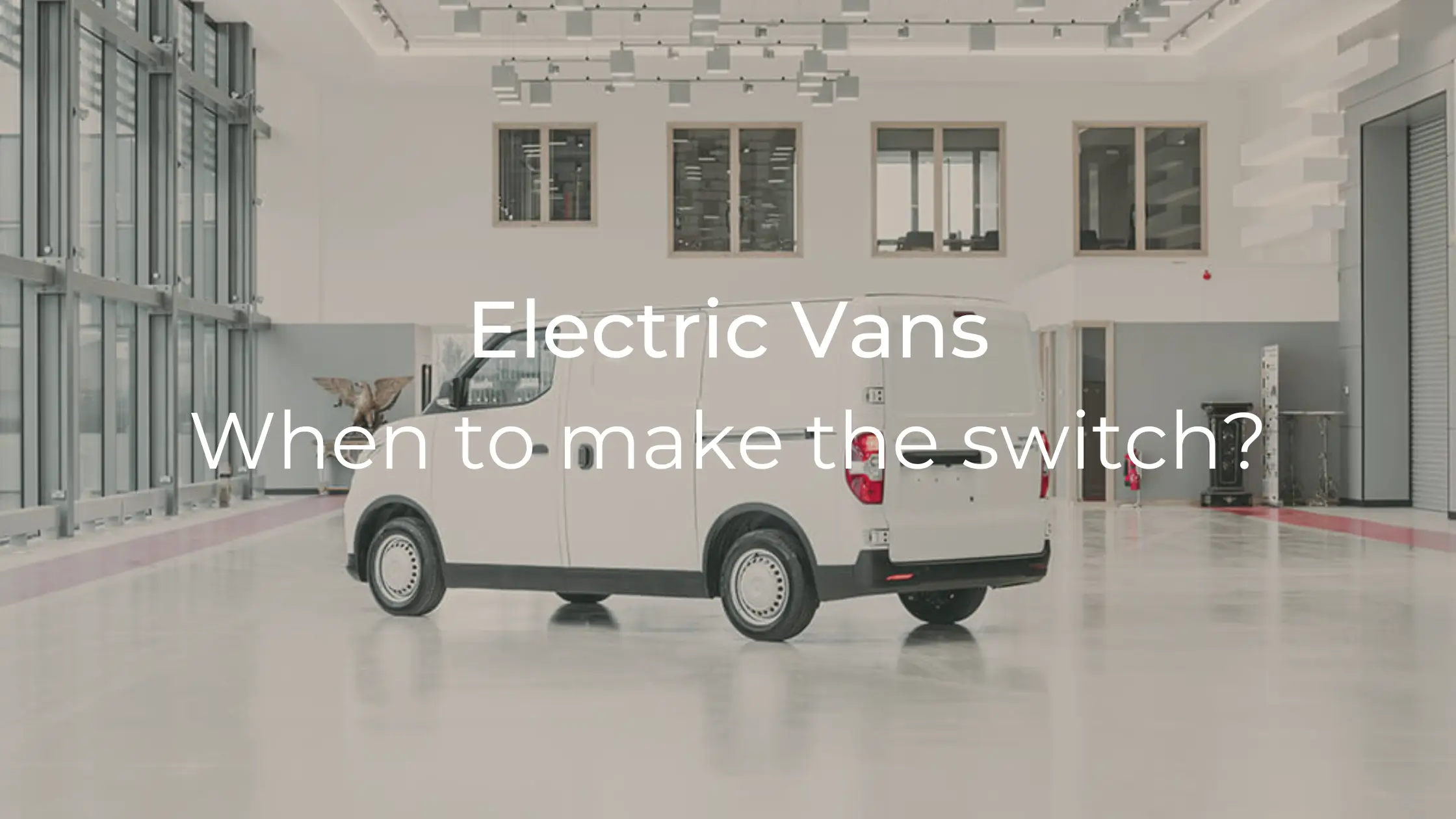
27-03-2024
Driven by environmental concerns, economic benefits, and a rapidly growing selection of capable models, electric vans are becoming a compelling option for businesses of all sizes in the UK. This shift aligns with the government's ambitious goals for zero-emission vehicles, paving the way for a cleaner and more sustainable future for deliveries and transportation.
There are several compelling reasons for UK businesses to consider switching to electric vans. Firstly, they produce zero tailpipe emissions. This significantly reduces a company's carbon footprint and contributes to cleaner air, especially in urban areas where pollution levels can be a major concern. Secondly, electric vans offer the potential for significant cost savings. Electricity is generally cheaper than petrol or diesel, leading to lower fuel costs per mile. Additionally, electric vehicles require less maintenance compared to their traditional counterparts, further reducing operating expenses.
There are several compelling reasons why businesses in the UK should consider switching to electric vans:
The UK government is actively encouraging the adoption of electric vehicles, including vans, through a number of grants and subsidies. These incentives can significantly offset the upfront cost of an electric van, making them a more accessible option for businesses. Furthermore, many cities in the UK are implementing Clean Air Zones (CAZs) with restrictions on polluting vehicles. Electric vans are exempt from these restrictions, ensuring continued access to city centres for businesses that make deliveries in these areas. Finally, switching to electric vans allows businesses to demonstrate their commitment to sustainability and environmental responsibility. This can be a valuable asset in attracting eco-conscious customers who increasingly value companies that prioritise environmental well-being.
The UK market for electric vans is experiencing rapid growth, with established manufacturers and new players offering a diverse range of models to cater to different business needs. For smaller businesses focused on urban deliveries, the Renault Kangoo E-Tech is a compact and practical option boasting a range of up to 190 miles. The Nissan e-NV200 is another popular choice, offering a good balance of cargo space, range (up to 187 miles), and affordability. Businesses looking for a versatile option with a spacious cargo area can consider the near-identical triplets – Peugeot e-Partner, Citroën ë-Berlingo, and Vauxhall Combo-e – which offer a range of up to 174 miles. The Maxus eDeliver 3 is a newcomer in the small van segment, attracting attention with its competitive price point and decent range of up to 193 miles, making it a good value proposition for smaller businesses.
As businesses move towards medium-sized vans, the options become more diverse with established players offering powerful and well-equipped models. The Mercedes-Benz eSprinter sets the benchmark for performance with a range of up to 239 miles and a spacious cargo area, making it ideal for businesses with extensive delivery routes. Ford enters the fray with the E-Transit, a well-equipped and powerful option offering various battery sizes and a maximum range of up to 196 miles. Volkswagen caters to a variety of needs with the e-Crafter, a versatile van available in different body styles and offering a range of up to 109 miles.
For businesses that require large vans for substantial cargo capacity, the Peugeot e-Expert, Citroën ë-Dispatch, and Vauxhall Vivaro-e triplets offer a practical solution.
The UK market for electric vans is experiencing rapid growth, with established manufacturers and new players offering a diverse range of models. Here's a look at some of the key contenders:
Small Vans:
Medium Vans:
Large Vans:
Businesses seeking a touch of luxury can consider the Mercedes-Benz EQV, a premium electric van delivering comfort and a range of up to 199 miles.
Selecting the right electric van depends on a company's specific needs. When making this decision, it's crucial to consider several key factors. Firstly, range is a critical consideration. Electric vans have varying ranges, so it's important to choose a model that aligns with your typical journey length to ensure you can complete deliveries without needing to recharge mid-route. Cargo space is another key factor. Businesses need to assess the volume and weight of cargo they typically carry to ensure the van has sufficient capacity to handle their deliveries efficiently.
Selecting the right electric van depends on your specific needs. Here are some key factors to consider:
Charging infrastructure is a vital aspect of transitioning to electric vans. The widespread adoption of electric vehicles relies heavily on the development of a robust charging network.
The UK government is actively investing in expanding the national network of charging points, including rapid charging options, to address this need. Businesses should assess their access to charging points at home, depots, and on delivery routes. Rapid charging capabilities can be particularly beneficial for companies with longer routes or tight turnaround times.